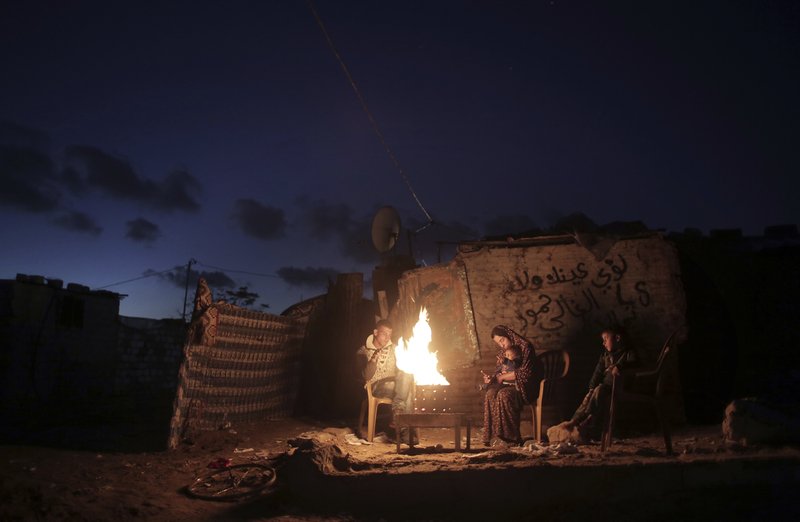GAZA CITY, Gaza Strip -- The U.N. envoy to the Mideast said Monday that the recent cease-fire between Gaza's Hamas rulers and Israel was the "last chance" to prevent an all-out conflict. A Qatari envoy arrived the same day in the Palestinian enclave with cash to help cement the truce, which halted the worst round of fighting between the two sides in years.
After a spate of violence killed 25 Palestinians, including 15 civilians, as well as four Israeli civilians earlier this month, Nickolay Mladenov, the U.N. diplomat, said he hopes all parties see that "the risk of war remains imminent."
Mladenov, inaugurating a solar power plant for a Gaza hospital, said the parties must "consolidate the understandings" of the cease-fire. He said "the next escalation is going to be probably the last one" before the sides descend into a full-fledged war.
The latest bout of fighting was the worst since a deadly and destructive war between Israel and Hamas in 2014. It ended with a cease-fire brokered by Egypt and helped by the U.N. and Qatar.
The most recent cease-fire deal promises to let fuel and humanitarian aid into Gaza, as well as ease the movement of people from the blockaded territory. Among its terms is a program to create jobs for thousands of graduates. Unemployment in Gaza, which has been under an Israeli-Egyptian blockade since the militant Hamas group seized power 12 years ago, is over 50%.
Qatari envoy Mohammed al-Emadi arrived in Gaza with a $30 million cash infusion meant for tens of thousands of needy families as part of the cease-fire understandings. Hours later, beneficiaries lined up outside post offices to cash the $100 checks.
Mohammed Abu Eida, 30, stood in the queue, a pair of crutches propping him up as he recovers from an injury. "We want them to lift the siege so we can work. I have rent for my home and I'm married and have a daughter; what is $100? It's insufficient."
The oil-rich Persian Gulf country stepped up its financial support to Gaza last year in order to defuse tensions that have mounted and, in several cases, broken into cross-border fighting, after Hamas launched weekly protests along the Gaza-Israel perimeter fence. Qatar had previously provided millions of dollars for Hamas government salaries, but, after Israeli protestations over funds going to the militant group, the money now goes to relief operations.
Since 2012, Qatar has financed over $750 million in housing, infrastructure projects and relief operations in the Gaza Strip. Though Doha doesn't pay directly to Hamas, which the United States and the European Union classify as a terrorist organization, the cash infusions relieve Hamas from having to fund such vital projects.
Last week, Qatar pledged another payment of $480 million to the Palestinians, but this time shifted most of it -- $300 million -- to Hamas' rival in the West Bank: Palestinian President Mahmoud Abbas's Fatah party-run Palestinian Authority.
Meanwhile, the U.N. Palestinian refugee agency, UNRWA, has warned that food supplies for more than half of Gaza's population "will be severely challenged" if the agency doesn't get at least $60 million in additional funding by June.
A Section on 05/14/2019
